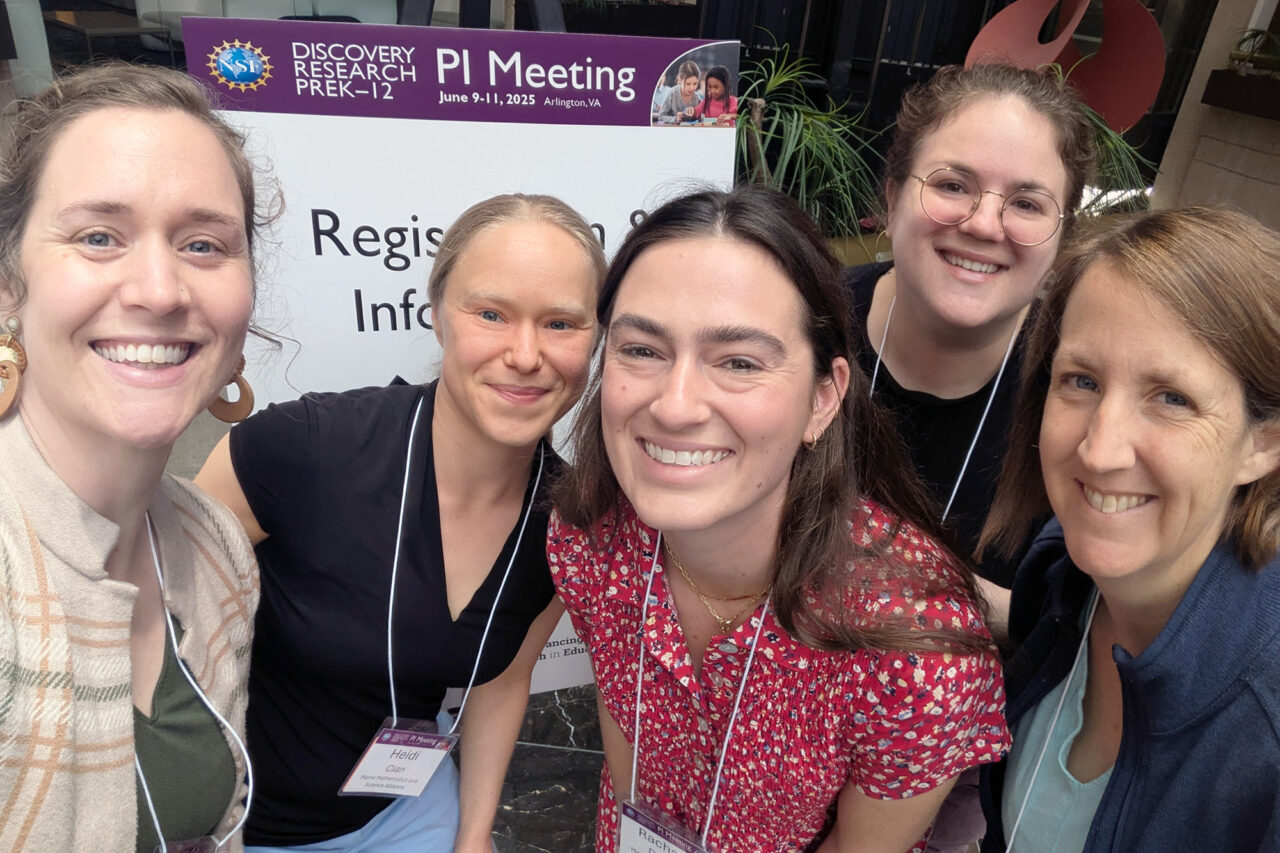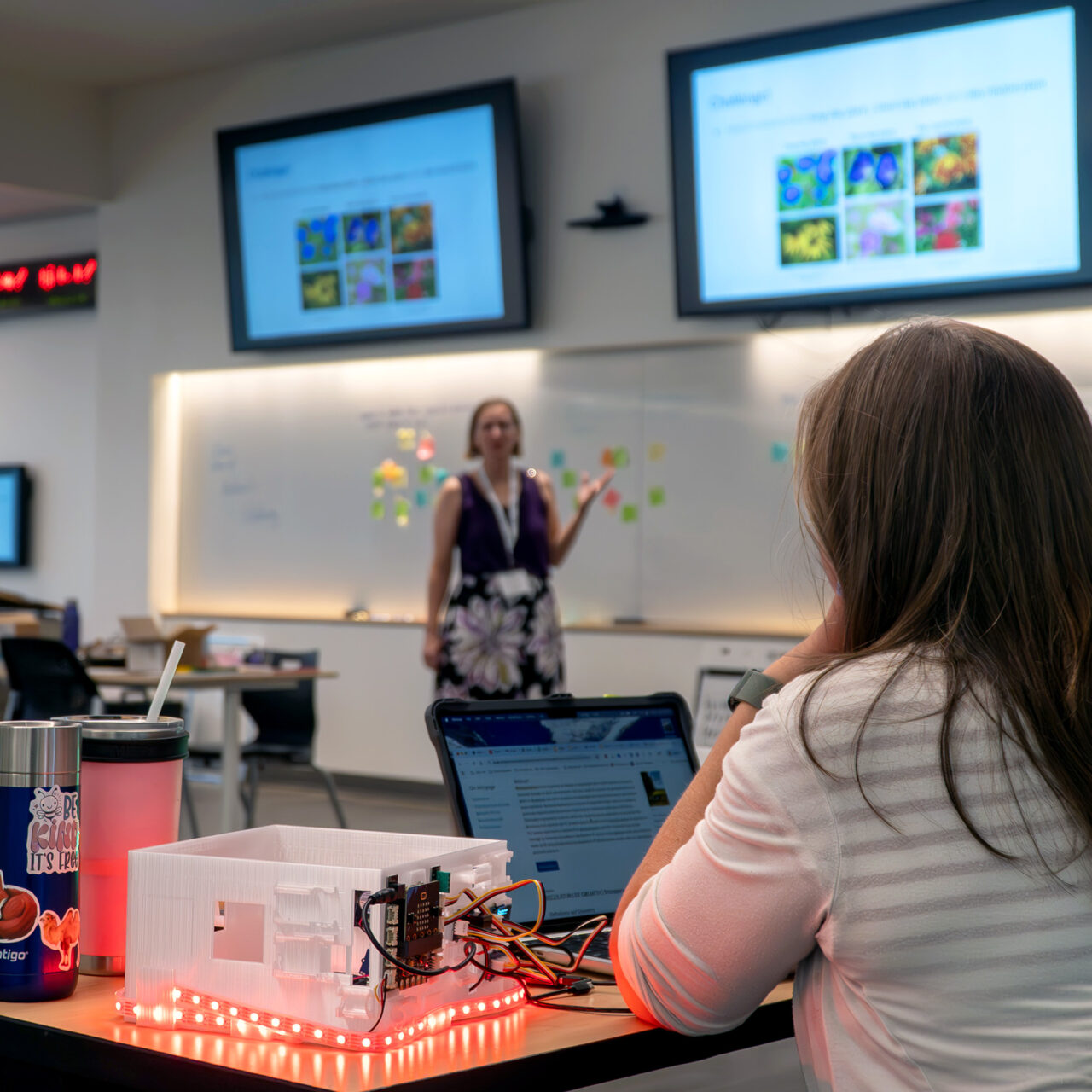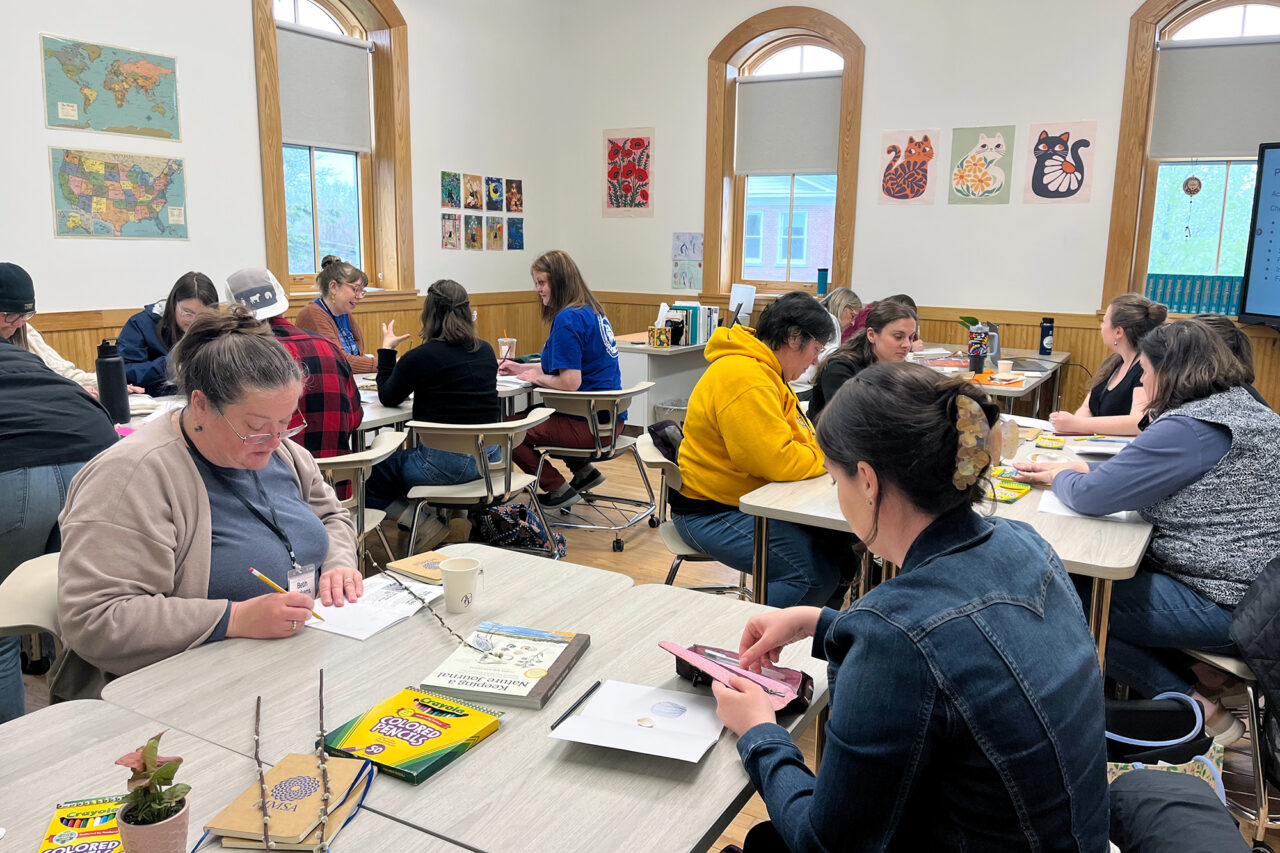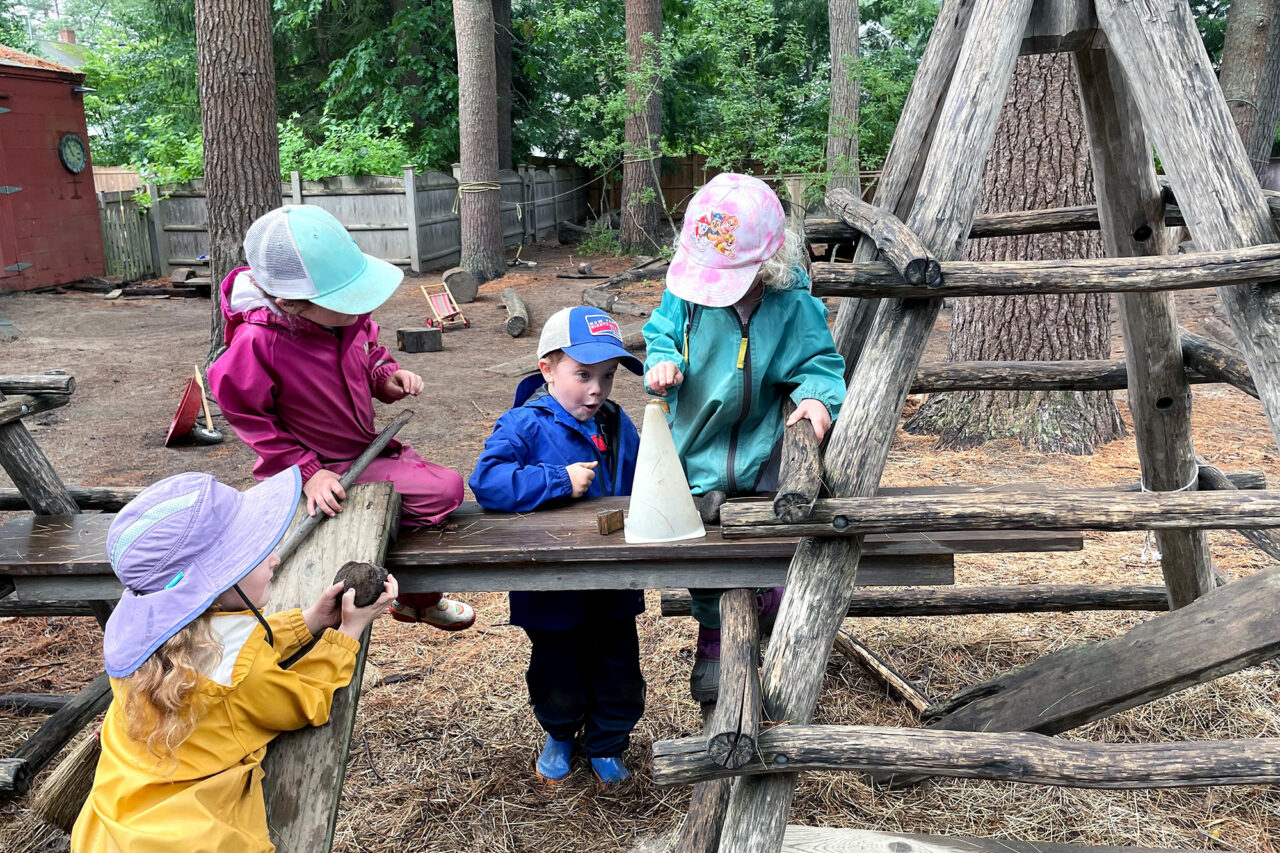DRK-12, CADRE Leave Lasting Impact on STEM Education in Maine
Posted on

The Community for Advancing Research in Education(opens in a new tab) (CADRE) is a network of STEM education researchers funded by the National Science Foundation’s Discovery Research PreK-12 (DRK-12) program. CADRE and DRK-12 have been an integral part of MMSA’s work in recent years, supporting numerous projects and research on early childhood science, place-based education, and transdisciplinary learning combining natural and computer sciences.
CADRE’s 2025 fellowship cohort includes MMSA researcher Dr. Heidi Cian, a distinction awarded to nine early-career researchers from jurisdictions like Maine with underinvestment from the National Science Foundation (NSF). For six months, CADRE provides these Fellows with scaffolded peer support and mentorship while advancing a career development project of their choice.
Since 2008, CADRE has connected hundreds of Discovery Research PreK-12 (DRK-12) projects to catalyze collaboration and raise awareness of the important work being done to strengthen STEM education in classrooms nationwide.
As the CADRE program sunsets, we would like to highlight how this funding has supported MMSA to advance meaningful STEM education for all.

Smart Greenhouses
Partnering with Boston College’s Lynch School of Education and Human Development, MMSA is bringing smart greenhouses and transdisciplinary curriculum to Maine classrooms. What makes the greenhouses “smart” is the miniature computers that can be programmed to monitor and adjust conditions for the plants inside. Lessons about plant science and computer coding enable teachers and their students to explore both fields simultaneously.

Sensemaking about Place-Based Phenomena (SAP)
Sensemaking about Place (SAP) involves researchers and educators co-creating curriculum based on local phenomena. The cohort, which includes elementary-level educators, administrators, and researchers, will create units adapted to five rural areas of Maine as well as parts of Hawaii and Montana in the next 2 years.

SciEPlay
The SciEPlay project addresses a critical gap in early education: while young children are naturally curious, science instruction is rare in early childhood settings. Many educators feel they lack time, background knowledge, or confidence to effectively teach science. SciEPlay rises to this challenge by providing professional learning that supports age-appropriate, play-based science learning. In collaboration with Bowdoin College and Samara Early Learning, we investigate how young children engage in Science and Engineering Practices (SEPs) through play. Additionally, we explore how early childhood educators can support play-based STEM learning through purposeful play environments, intentional materials, and strategic teacher moves. In tandem with this research, we are developing open-source professional learning materials to help PreK-2 educators notice and extend play-based science learning, building upon children’s innate curiosity, interests, and ideas.
The inaugural cohort of PreK and Kindergarten teachers demonstrated remarkable growth throughout the professional learning experience. They have gained confidence, knowledge, and strategies to support play-based science and engineering in their classrooms and outdoors space. One participant explains, “I’ve learned to incorporate science into more areas of the school day and it has allowed me to think about the spaces we have accessible to us at our school and the various ways we can explore those spaces to help guide scientific exploration, learning, and conversations.”
The research and projects made possible through DRK-12 and CADRE have created a lasting legacy in Maine’s classrooms. From inspiring engineering interest through SciEPlay to building computational literacy through Smart Greenhouses, these projects demonstrate the profound value of targeted investment in STEM education research. The lessons learned and the successful models developed will continue to inform and inspire MMSA’s work for years to come.